An Expat’s Guide to Dating Sites in China
You can’t always Tinder, but you can Tantan. You can choose between chatting with new friends on popular social networking apps or swiping right to … Read more
Living in China is an experience unlike any other. Your perceptions will shift as you embrace language and culture. You will face challenges and new experiences that will help you to learn and grow. You will make new friends and build yourself a home. Don’t be intimidated! After living in China you will realize that it is unique and fascinating, not scary.
Contents
Here is a brief list of some of the good and bad things about life in China.
Pros:
Cons:
While costs are rising, China still has a relatively low cost of living, and it is easy to live a comfortable lifestyle. Below is a rough estimate of what a single person might budget for per month living in China.
All prices in this section are in U.S. Dollars. These represent tier 1 cities. You can take about 30% off these prices if you live in a smaller Chinese city.
For more details, check out our cost of living guides:
Accommodation: US$1,200 for a 1 nice bedroom or a studio apartment per month. Note that upon move-in, you will need 3 or 4 months rent up front.
Bills and Utilities: $150 because you will need a phone plan, a home wifi hookup, VPN subscription, gas, water, electricity, maybe a cleaning service and laundry.
Food and drink: US$500 is a fine budget if you cook a bit at home, eat out when you feel like it, brave the occasional street food, and enjoy the occasional beer.
Clothes and Beauty: US$250 will cover you for a couple of massages, a good haircut, some products, and some new clothes for work.
Household items: US$100 should be more than enough each month for things you need round the home as apartments in China come furnished. You will want to get yourself small electronics, bedding, and miscellaneous items.
Transportation: US$70 will be enough to get you around the city in taxis or rideshare cars and set you up with a metrocard for public transport.
Total: US$2,270 per month or around 15,000 RMB is what you will spend to live a very comfortable and easy life as a single foreigner in China.
Considering most young professionals, international school teachers, and successful expats make 25,000 to 35,000 RMB per month, this means you can save a lot of cash and enjoy frequent holidays and luxury items.
There are plenty of exciting job opportunities in China for foreigners. Many foreigners become entrepreneurs once they get settled, opening bars, restaurants, and other businesses.
The Beijinger and SmartShanghai are good websites to visit to find opportunities for work. Most jobs available for foreign expats in China are to teach English.
Qualified teachers (those with an MA.Ed or a PGCE, and a teaching license) should register on both Schrole and Search Associates as all of the highest paying international schools recruit exclusively via those sites.
Definitely scroll through the typical job-search websites like China Job, Jobsite China, Hired China, Jobs DB, and China Foreigner Jobs.
Linkedin is very popular in China for recruitment so keep your profile up to date and use it like an online CV.
For more details about working in China, see our guides:
Certain parts of China can be difficult to get around if you only speak English. It is smart to have a language translation app on your phone to communicate with people.
Pleco is the most popular Chinese dictionary. It has a document reader, and it has a vast dictionary.
WeChat is the most important app to have in China for digital payments and more. The built-in translator will save you so many headaches. Select the plus (+) button on the top right corner, select “Scan” and then on the bottom select “Translate.” You can take a picture of any Chinese text and it will translate it into English for you.
The Google Translate app will be most useful as well. You can input your sentence, translate to Mandarin Chinese (simplified Chinese characters), and then either have the Chinese person read it themselves or play the audio.
While living in China, don’t pass up the opportunity to learn Chinese:
Healthcare in China is generally free or extremely cheap for Chinese citizens at government facilities. In some cases expats can receive free healthcare as well.
The service provided at public hospitals in China is inconsistent in quality, language is a struggle and many times you can be waiting in line all day to see a doctor.
Service and quality care at international or private clinics in China is some of the best in the world and still comparatively affordable compared to countries without universal healthcare like the USA.
Most expats in China choose to take out private health insurance so they can visit private or international hospitals and clinics.
To learn more about heath and health insurance in China, see our guides:
Foodies are in for a treat when they move to China!
Chinese food is so diverse and the international food scene is booming with world-class high-end restaurants as well as independent global cuisines represented at artisanal eateries.
In the north of China, wheat-based dishes like dumplings and noodles are popular, while in the south, rice and seafood star. Sichuan cuisine is known for its spice, Cantonese cuisine is famous for its delicate and fresh ingredients. Then there is Hunanese, Shanghainese, and Fujianese; each region bringing a distinct cooking style and flavor.
Street food in China is an integral part of the country’s culinary culture and street vendors can be found all over the country serving up an array of delicious and affordable dishes and snacks.
Some of the most popular street foods in China include Jianbing, a savory breakfast crepe made with egg, scallions, and crunchy fried dough; Baozi, steamed buns filled with meat and veggies; spicy Sichuan noodles; and grilled Xinjiang lamb skewers.
Home comforts are easily available in fast food chains from KFC and Macca’s to Starbucks and Pizza Hut, but also in more niche outlets like LA’s Fatburger, Canada’s Tim Horton’s, and Philippines’ Jollibee.
The Michelin guide for China is a great place to start if you are looking for the best food in all categories. You will find double Michelin Star winners like European Taian Table in Guangzhou and Italian Da Vittorio in Shanghai. And one Michelin Star spots like TRB Hutong in Beijing along with a slew of Bib Gourmand and recommended restaurants.
China has something to eat for every palette at every price range. You can easily spend a dollar on breakfast and 500 dollars on dinner.
Personal safety is typically not a major issue for most individuals in China because of the low crime rate. Pickpocketing, scams, and rare acts of violence are a few risks to be wary of, just like in any other country.
It’s important to use caution and common sense, especially at night and in crowded settings, and to always be aware of your surroundings.
The most common crime you will come across is blatant, happens when you are new to the country, and is pretty much unpunishable: Rip off scams.
There are taxi drivers at airports who refuse to use the meter and charge you ten times the usual fare. There are pretty girls who will ask you to go to a teahouse with them and then stick you with a bill for hundreds of dollars for some mysterious “rare” tea you unwittingly let her order. There are drivers who will take your real hundred yuan note, pretend to inspect it, and then hand you back a counterfeit one telling you yours was fake.
Learn More:
A visa is always required for entry into China. In order to get a visa, you, or someone representing you, has to appear in-person to a Visa Office. You need to plan ahead and make sure you have the proper documentation and fees.
The only people who do not need to apply for a visa in advance are those in transit. If you are passing through China to get to another place, you might not need a visa. Check your specific situation before you travel.
The Study Visa (X1/X2) is issued to those who have been admitted by a Chinese college or university for study.
There are business and tourist visas if you would like to visit the country first before deciding to live there but the main type of visa for those who plan to live long-term in China will be the Work Visa (Z).
For more information on Chinese visas, see our guides:
There are multiple flight options going into China but the pandemic disrupted global travel and China was possibly the worst affected country with restrictions going on for much longer than elsewhere around the world.
China has at least 25 international airports. The main ones are:
Peak travel seasons will see prices soar during holidays like Chinese New Year (Spring Festival) in January or February, National Day (Golden Week) in the first week of October, Christmas in December, and School summer break around August.
Due to the COVID-19 pandemic there are fewer flights into and out of China these days as their travel industry just starts to get going again. From January 8th of 2023, China scrapped quarantine for all travelers.
The cost of flights into China will vary widely depending on the time of year, the airline, the departure city, and the duration of the flight.
To get an idea of flight prices into China, you can check online travel booking websites and airline sites as well as sign up for email alerts to help you learn about promotions or discounts.
Here are some one way flight price averages for June of 2023 (USD):
You will likely want to take important items with you to China in the beginning before you get settled and figure out where to buy things.
Don’t forget all of your important documents when you move to China such as ID, insurance cards, credit and debit cards, medical records, prescriptions, and of course all of your visa paperwork and passport.
Some items are more expensive in China or harder to find. Consider packing things like:
If you are moving to China for a year or two, then it is advised to simply bring your necessities in your luggage and make do with the things you can find in China (which is most things to be honest).
If you are staying long-term and want to take your whole life to China including furniture, then there are moving companies that are happy to help you out.
You can go to our webpage here and fill out the form to get five free quotes within 24 hours from international shipping companies.
Learn more about shipping to and from China:
Bringing your pet to live with you in China is possible, but there are many steps that need to be taken:
Find out more:
There are many wonderful cities to live in in China as an expat.
The number one city for expats to live in is Shanghai. It is full of expats from all around the world, and it is a fun mix of both Chinese and Western influence. The French concession is a beautiful area to explore both during the day and night, and the Bund and Nanjing Road are the most popular tourist destinations, with stunning views, delicious food, and lots of shopping and sight-seeing.

Shanghai has no shortage of restaurants, bars, nightclubs, cafes, parks, gardens, and shopping centers. It is also easier to find some Western comforts in Shanghai than in other places. Although Shanghai is more expensive than most other cities, it is still relatively cheap compared to Western standards.
Find out more: The Best Places to Live in Shanghai for Expats
As the capital of China, Beijing is home to unique opportunities, and is an exciting place to live with a large expat community. Beijing is home to some of China’s most famous attractions, such as the Great Wall of China, the Forbidden City, the Temple of Heaven, and the Summer Palace.
Beijing has gone to great lengths to preserve its cultural roots and ancient streets, while at the same time enjoying modern expansion and architecture.
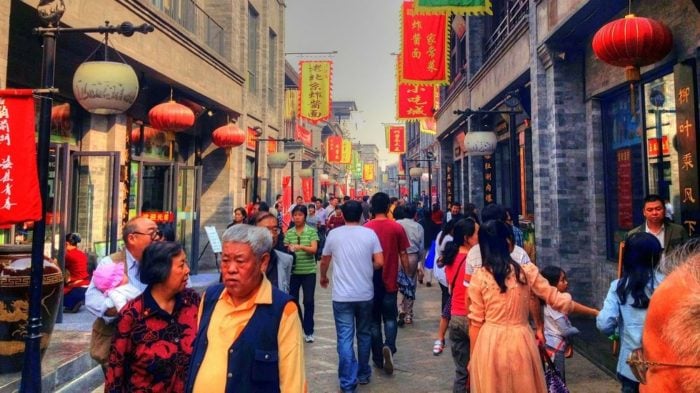
The transportation in Beijing is cheap and convenient, the food is delicious, and the dialect in Beijing is considered the standard Mandarin Chinese pronunciation.
Find out more: An Expat’s Guide to the Best Place to Live in Beijing
Known for its spicy food, relaxed lifestyle, and vibrant culture, Chengdu offers a unique blend of modernity and tradition.
The city is home to a pretty large international community, and expats can easily find familiar comforts while also immersing themselves in the local way of life. From exploring ancient temples to enjoying a hot pot meal with friends, to snooping on adorable pandas, Chengdu is a great option for your new home.
Find out more: The Complete Overview of Living in Chengdu as an Expat
Hangzhou has a growing expat community while also offering a more intense cultural experience. Hangzhou has smaller groups of expats that form a tight-knit community and get together often to play sports, attend events, and explore the city.
Hangzhou is very close to Shanghai and is a popular spot to live when that SH life is just too expensive.
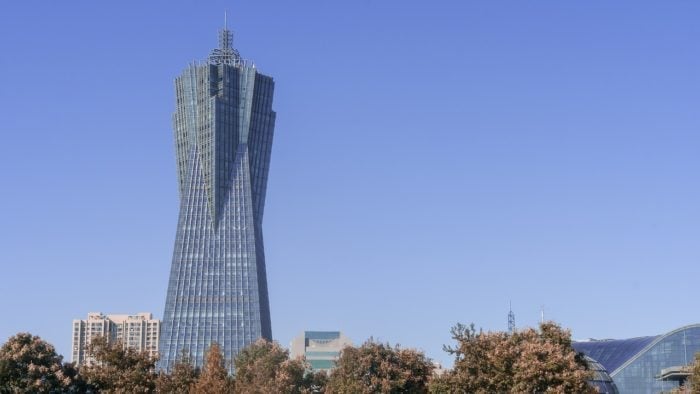
Hangzhou is most famous for its West Lake area and its stunningly beautiful Longjing Tea Plantation. It is also home to many restaurants and parks and shopping centers to fill your nights and weekends.
Other popular cities for expats to live in include Shenzhen, Guangzhou, Suzhou, Qingdao, Tianjin, Xi’an, and Wuhan.
Each of these cities has its own pros and cons. But each of them could potentially be a great home for you and your family.
There are various types of accommodation for you to choose from:
The quality of each building will vary depending on age and price. Older apartment buildings tend to be more spacious but do not have glamorous facilities like gyms, pools, and fancy lobbies. New high rises are often decked out with all the glam accessories, but they come in compact sizes and with higher prices.
Your HR department in China should help you find accommodation. If you are on your own, then expat sites like SmartShanghai and The Bejinger’s classifieds are a good place to start looking.
A good real estate agent will make the process much easier. You can find them through word-of-mouth, WeChat expat groups, and by walking into any agency you see on the street in the general area you want to live in.
The usual rent period is 12 months, with an option to renew for a second year. Security deposits are generally about two to three months’ rent.
At any place you live, you need to register yourself with your local police. At hotels, fancier condos, or serviced apartment complexes the landlord will do this for you.
Utilities in China include gas, electric, water, internet, and possible extras like cleaning, pool and gym, or laundry. Management fees should be paid by the landlord. Most bills can be paid using WeChat Pay or in person at the management office of your building. See the cost of living section above for approximate fees.
China’s tap water is not safe for drinking, and you should always drink filtered water. Bottled water deliveries in China are very cheap, or you can install a filter on your taps. Showering and brushing your teeth with the water is fine.
Prepare your phone for use in China before you arrive. In order to use a Chinese Sim card, you need to have an unlocked phone. If your phone is registered with a carrier company then you need to contact them on how to get it unlocked or else buy a new phone that is unlocked.
Once you are in China you will need a sim card right away. Prepaid sim cards are most popular. You can buy one at the airport or at any phone provider shop around town.
They will help you set it up. Once you have a number, it is pretty easy to change plans. You can top up for your phone credit with WeChat or the carrier app.
The price of a pre-paid sim card will range from 10 to 100 RMB. Believe it or not, the auspiciousness of the phone number helps determine the price. A number with lucky 8s in it will cost more than a number with unlucky 4s.
The mobile phone and internet market is dominated by three main providers: China Mobile, China Telecom, and China Unicom. They all provide service in English. China Mobile is by far the most popular for foreigners and a safe bet.
Because of the Great Firewall of China, you will not be able to access some apps or websites unless you have a VPN. Although it might be possible to download a VPN after you get to China, it is much easier to do it beforehand.

The two most popular VPNs used by expats in China are Astrill VPN, ExpressVPN, and NordVPN.
You will want to download VPNs on any phones, tablets, or computers you will be bringing with you.
VPNs are not entirely foolproof in China, and the government has been known to crack down on VPN usage. Therefore, it’s important to use a reputable VPN provider. Free VPNs are unreliable and possibly unsafe.
Learn More: The Complete Guide to Choosing the Best VPN for China
WeChat is China’s number one mobile app. It is 100% necessary for an easy life in China.
It is used for literally everything, not just text messaging. It is the main social media app, online shopping, ride-share, travel booking service, and even paying bills.
It is hard to comprehend until you start using it, but in China, you just won’t have all those separate apps on your phone. Everything happens inside WeChat.

WeChat’s messaging system is simple. You can add a friend by scanning their QR code or putting in their user ID number. You can create and join groups.
In addition to joining chat groups with friends and coworkers, you can join public groups for all kinds of things such as sporting groups, church groups, and travel groups.
Each Chinese city will have dozens of different groups that you can find through recommendations from friends. They are a great way to find people with the same interests as you.
Once you get a Chinese bank account, you can link your card to your WeChat and use it to pay for food at restaurants, groceries, and delivery services. Even tiny street vendors selling fruit will have a WeChat QR code for you to pay them.
China is essentially a cashless society.
Learn More:
Opening a bank account is not difficult for foreigners in China and having a Chinese bank account is crucial to Chinese life. You cannot sign up for WeChat pay or Alipay without one.
See our full guide to opening a Chinese bank account here
Here are some popular Chinese banks:
You will want to choose a bank that is convenient for you since your bank account will be tied to the branch where you opened the account.
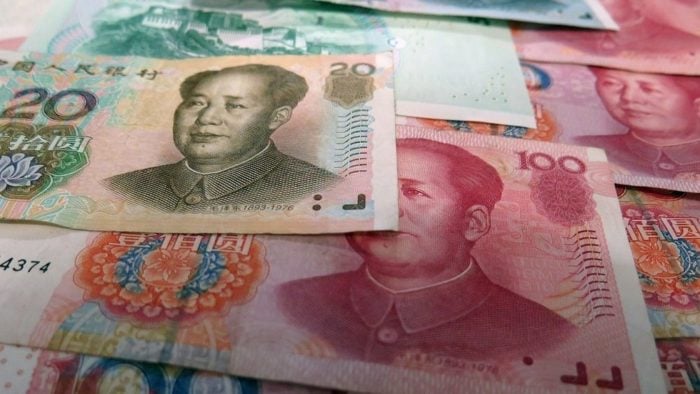
It is hard, but not impossible for a foreigner to get a credit card with a Chinese bank. To be eligible for credit in China, you must have a Work (Z) or Business (M) visa, and provide proof of income for at least two years.
See our full guide to getting a Chinese credit card as an expat here.
Fluent Chinese language skills are preferred, but a Chinese friend may be able to assist with interpretation.
You will need various documents such as your work permit, work contract, residence permit, proof of address, and tax records.
Having a high-paying job, working for a Fortune 500 company or having a relationship with a bank may increase your chances of success. Remember to bring your passport when applying.
When you are first getting established in China, you might need someone back home to send you some cash. This part is easy.
Learn More: A Guide on the Cheapest Way to Send Money to China
After a few years of working and saving, you might need to start sending money back home. This part is way more complicated.
Learn More: How To Send Money From China – The Ultimate Guide
Getting your money out of China is difficult due to strict limits and high fees. However, there are ways to do it, including physically carrying cash, bank transfers, and money transfer services, all of which have rules regarding the amount of money that can be transferred.
Read our guides above to make sure you are prepared for this reality of life in China.
If you are bringing children to China then you have more to think about. You might need to hire a nanny and will likely definitely need a housekeeper.
You need to consider where your kids will go to school.
Although public school is free to Chinese citizens, foreign students need to pay tuition fees. Public schools in China are also taught in Mandarin Chinese, so your child will need to be proficient in Chinese before they attend in order to understand the curriculum.
There are plenty of private and international schools for expat children to avoid the language barrier of public Chinese schools. These schools are the popular choice for expats but they are expensive with annual tuition fees anywhere between US$10,000 and US$25,000.
Private schools are in high demand, and children are often put on long waiting lists.
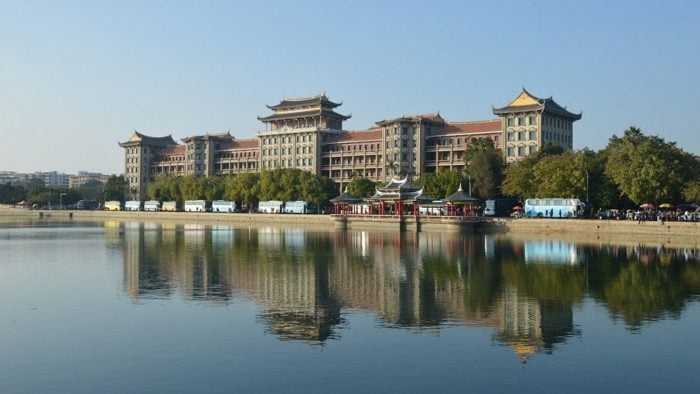
Once you decide which city you will move to, you can search online for schools in the area and find plenty of reviews for the best schools in your city.
We have also created some in-depth guides to international schools:
If you want to avoid public schools and paying exorbitant fees for private school, then you can choose to homeschool your child or hire a private tutor to teach them instead.
There are also plenty of language schools and universities to attend all around the country if your children are college-age or if you want to pursue more tertiary education.
Learn More: An International Student’s Guide to Studying Abroad in China
In China, anyone earning money as an employee or business owner is expected to contribute to society through taxation, but the taxes are relatively low compared to other countries, and paying them is simple for most expats.
See our full guide with all the details here:
Personal Income Tax for Foreigners in China (2022)
All income earned within China is subject to taxation, while non-residents only need to pay tax on income earned within China.
The tax system is progressive, with higher percentages being applied to higher income bands. For instance, the first RMB 36,000 is taxed at 3%, and the next RMB 108,000 at 10%. These rates are subject to change.
Adjusting to life in China takes time, but exploring your city is the best way to do it.
Exploring different cities in China can be a lot of fun, but it’s not always easy to know what activities to do or find people to do them with. Luckily, there are online resources that can help:
There are also Facebook groups like Foreigners in Beijing and subreddits like Expats in China that can connect you with fellow expats, who you can then chat with on WeChat to plan family trips, weekend getaways, or bar crawls.
With abundant restaurants and street food, you can wander around and try different culinary treats. Take the local transportation and meet new people to make friends and start to feel at home. Learn the language and don’t be afraid to strike up conversation with locals.
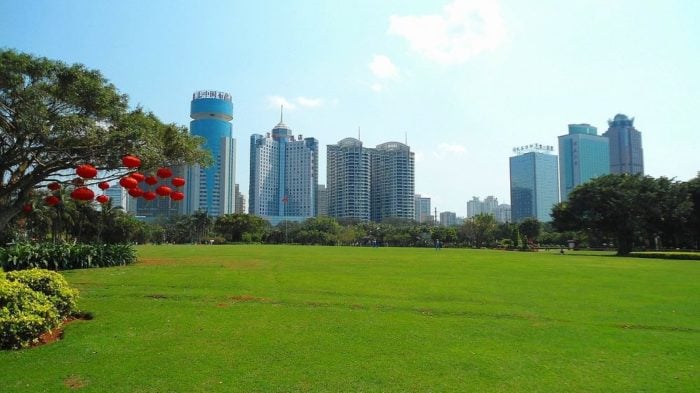
China also offers nighttime activities such as cinema, shopping, clubs, and dance performances. Parks and gardens in China are beautiful and a great way to explore your new city.
Learn More: Recommended Parks in Beijing for an Expat’s Wellbeing
By joining WeChat groups by invitation, you can easily stay up to date on events and happenings in your area, and find like-minded individuals to enjoy them with.
Here are some of our own guides that will help:
Renting a car or buying a new or used car in China as a foreigner is not for everyone, but it is possible.
Driving in China can be challenging due to the high volume of traffic and the country’s unique driving culture. In many cases, it may be more practical to use public transportation, such as the extensive subway systems found in major cities like Beijing and Shanghai.
However, if you plan to explore more remote areas or have specific transportation needs, renting or buying a car may be necessary.
Keep in mind that foreign drivers need to obtain a Chinese driver’s license, and it’s important to research local driving laws and regulations before hitting the road.
Luckily, we have lots of guides to help you out whatever your driving need:
The process of moving to China should be allowed plenty of time.
Once you have a job, obtaining your visa alone can take anywhere from a few days to a few months. You will need to get flights, arrange accommodation for when you first arrive, and pack up your life for the adventure of a lifetime.
Here is a sample timeline to get everything in order:
Three months out:
Two months out:
One month out:
So this is it, the exhaustive list of pretty much everything you will need to think about for your big move to China. All of the links to our extensive guides are on this page for your convenience.
As the Chinese say 祝你在冒险中好运! (zhù nǐ zài mào xiǎn zhōng hǎo yùn) – Good luck on your adventure!
Here are some of the most important guides you must read when moving to China:
 Health Insurance for Expats in China: What You Need to Know 2023-06-12 Have you recently moved to China to live or work? Then you're probably going to need health insurance. But when… ... Read more
Health Insurance for Expats in China: What You Need to Know 2023-06-12 Have you recently moved to China to live or work? Then you're probably going to need health insurance. But when… ... Read more Cost of Living in China: How Much Do you Need? (Updated for 2023) 2023-05-18 Cost of living is such a broad and subjective concept that it is hard to know where to start. A… ... Read more
Cost of Living in China: How Much Do you Need? (Updated for 2023) 2023-05-18 Cost of living is such a broad and subjective concept that it is hard to know where to start. A… ... Read more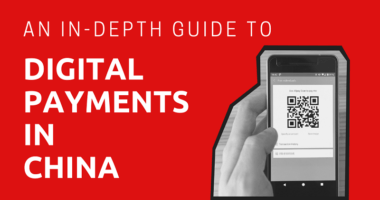 An In-Depth Guide to Digital Payments in China 2024-03-15 When the time comes to pay the bill in China, you’ll notice that not many people get a credit card… ... Read more
An In-Depth Guide to Digital Payments in China 2024-03-15 When the time comes to pay the bill in China, you’ll notice that not many people get a credit card… ... Read more An In-Depth Guide to Finding an Apartment for Rent in Beijing 2022-07-25 Beijing is massive. It can be the most daunting thing to open up a real estate website and see a… ... Read more
An In-Depth Guide to Finding an Apartment for Rent in Beijing 2022-07-25 Beijing is massive. It can be the most daunting thing to open up a real estate website and see a… ... Read more An In-Depth Guide to Teaching English in China 2024-03-04 China has been a popular location for English teachers for a long time. Sure, it might not be as tropical… ... Read more
An In-Depth Guide to Teaching English in China 2024-03-04 China has been a popular location for English teachers for a long time. Sure, it might not be as tropical… ... Read more My Personal Guide to Learning Chinese Language Fast for Beginners 2023-05-29 The thought of learning Chinese will likely both intrigue you and frighten you, considering that it's one of the hardest… ... Read more
My Personal Guide to Learning Chinese Language Fast for Beginners 2023-05-29 The thought of learning Chinese will likely both intrigue you and frighten you, considering that it's one of the hardest… ... Read more Getting a Credit Card in China as an Expat 2021-12-17 Credit cards have always been popular with travelers, offering a portable and safer form of payment accepted across many countries,… ... Read more
Getting a Credit Card in China as an Expat 2021-12-17 Credit cards have always been popular with travelers, offering a portable and safer form of payment accepted across many countries,… ... Read more China Visa Overview – An Expat’s Guide to Getting the Right Visa 2022-09-21 There are many types of visas for China and the one you need will depend on your reason for visiting… ... Read more
China Visa Overview – An Expat’s Guide to Getting the Right Visa 2022-09-21 There are many types of visas for China and the one you need will depend on your reason for visiting… ... Read moreFind common topics that will help you overcome the challenges of living, working, retiring, and starting businesses in China.
You can’t always Tinder, but you can Tantan. You can choose between chatting with new friends on popular social networking apps or swiping right to … Read more
China is known for its famous Great Wall of China. It is an architectural marvel that draws millions of visitors each year. China also has … Read more
When the time comes to pay the bill in China, you’ll notice that not many people get a credit card out. For a long time … Read more
China has been a popular location for English teachers for a long time. Sure, it might not be as tropical as Thailand, as glamorous as … Read more
The world’s second-largest economy is rife with all sorts of job opportunities for foreigners. But the job market has changed dramatically in recent years. Finding … Read more
As an expat in Beijing, you will inevitably visit a hospital in the Chinese capital city for one reason or another. It can be an … Read more
How to get the greatest amount of CNY in your Chinese bank account.
Use this step-by-step process to avoid the hassle and headaches of dealing with financial institutions in the country.
It’s hard to overstate just how important it is to your overall Shanghai expat experience to find a place to live that you love and … Read more
The thought of learning Chinese will likely both intrigue you and frighten you, considering that it’s one of the hardest languages to learn in the … Read more
Cost of living is such a broad and subjective concept that it is hard to know where to start. A suitable home for one person … Read more
Living in China is an experience unlike any other. Your perceptions will shift as you embrace language and culture. You will face challenges and new … Read more